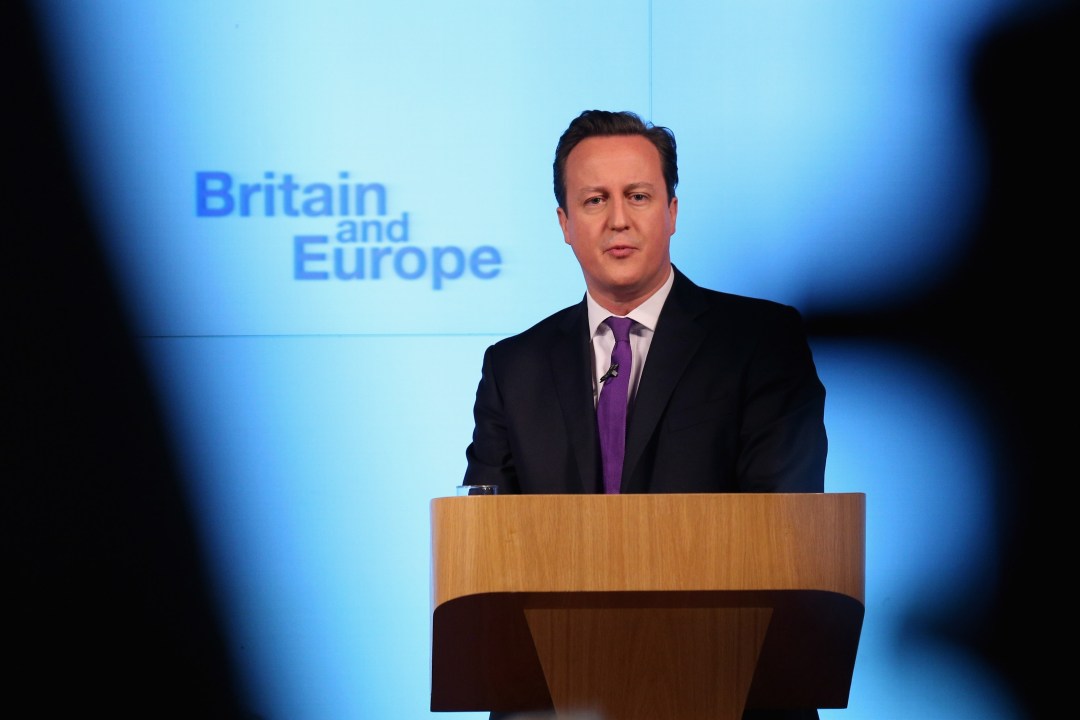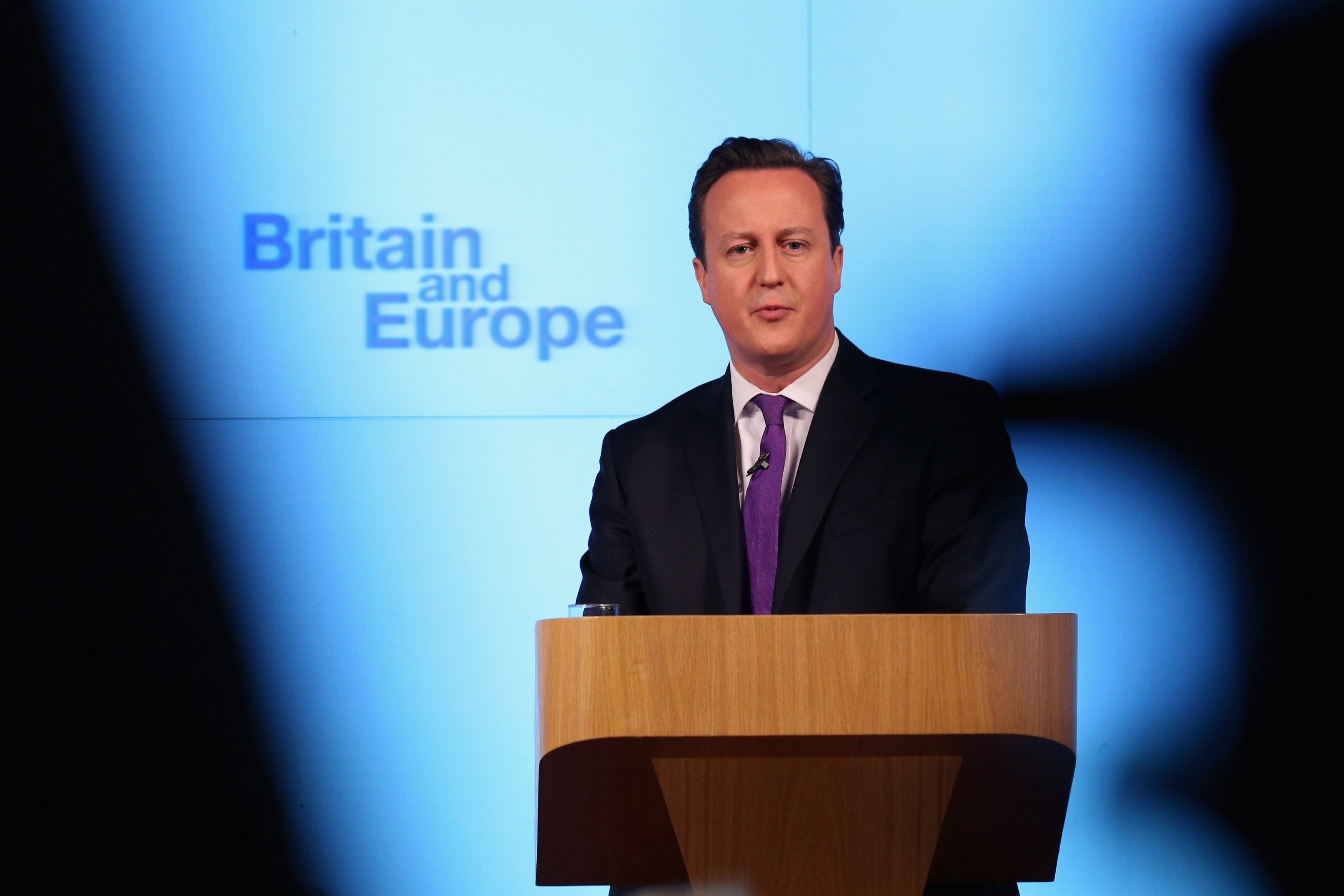Expediency is usually just trouble deferred. That’s the first thing to remember about David Cameron’s ham-fisted approach to his european referendum problem. The second thing to remember is that it is not, and never has been, about europe at all. It’s always been about the Tory party.
Which means the third thing to know is that it’s hardly a surprise Cameron’s approach is failing. Sure, everyone says, the Outers need to be ten points ahead if they’re going to win. And maybe that is right. But they’re running 50-50 at the moment and if I were an Outer I’d be happier about that than if I was an Inner. (This should obviously be known as the Belly-Button Referendum.)
A significant chunk of the Conservative party – perhaps amounting to 40 percent of members and a decent minority of the parliamentary party too – want Cameron to fail. This has always been obvious. I defy anyone to think of circumstances in which, for instance, Daniel Hannan could be persuaded to back a Stay In vote.
So it’s not a great surprise the ballyhooed ‘renegotiation’ strategy is not going very well. It could not satisfy Cameron’s internal foes even if it worked. This being so, it is not a great surprise it is not working.
Everyone knows Cameron favours Staying In. This includes the people with whom he is supposed to be negotiating in Brussels. Why should they be inclined to cut him a break when a) they know he wants to stay in and b) cutting him a break won’t help him with his critics because c) everyone knows they will reject any ‘deal’ he brings back to Blighty?
That’s a recipe for failure all around. A reminder, too, that there’s no pressing or principled reason for having this referendum in the first place. Or, to be more precise, Cameron has no pressing or principled reason for holding the referendum that is not explained by the misery of trying to manage a Conservative party that, on this issue at least, has never quite trusted him.
So, yes, the ‘renegotiation’ is a kabuki-game of political theatre that everyone has to pretend to take seriously while knowing, deep down, that’s its not worth taking seriously at all.
It’s true that most people take a relaxed view of these matters. That is, they are not very bovvered at all. Nevertheless, the people who are bovvered are extremely agitated by this issue. Still, Cameron (and George Osborne) have consistently hinted that the problem with UKIP and the eurosceptics isn’t so much that they’re wrong as that they’re unspeakably vulgar. As I’ve suggested before, UKIP are right, for god’s sake don’t vote for them is a bold, if unofficial, slogan to adopt.
Granted, a ‘positive’ case for EU membership is not going to stir many souls. The British people, by and large, just do not view the european club in those terms. Even so, at some point Cameron is going to have to explain why the membership fee would actually be cheap at twice the price. If he can’t then it’s just possible he could lose this referendum. That would be awkward.
But it’s not as though victory is going to help him very much either. What does he think his internal opponents are going to do? Does he think they’ll say Fair enough. We gave it a decent go but the people – the bastards – have spoken and that’s that. Game over.
Well, what do you think? Isn’t it more likely that the referendum will actually settle very little? It certainly doesn’t seem likely to leave the Tory party speaking with one voice on all matters european, far less concede that the game’s a bogey now. Cameron’s successor will have to grapple with the same european problems that have bedevilled almost every Tory leader since the Iron Lady sat on her Westminster throne.
The second-best thing Cameron can hope for, it seems to me, is that events – and opinion – elsewhere in europe turn in his favour. And yet even that may not be enough. In the first place, the instinctive response to questions of policy and even legitimacy in other european capitals tends to be to double-down on the inevitability and integrity of the european project. Secondly, and alternatively, if the european ship seems to be on the rocks – for whatever reason – the idea of leaving it inevitably, and perhaps necessarily, begins to seem more sensible. In other words, Cameron should not count on crisis helping him.
The Prime Minister should probably not count on receiving much help from his own campaign. It appears determined, after all, to run a campaign based upon a brace of idiotic claims. First, that the UK would be ruined by not being in the EU (it might be disadvantaged, the sky would not fall) and, second, that there is, anyway, no alternative. Neither of these are good or even necessarily winning messages.
Which leaves us with Cameron’s best chance of escaping a mess entirely of his own making: that the British people take a look at the people shouting most loudly for the UK to leave the EU and decide that, actually, blimey, they don’t want to fraternise with people like that. You know, the people so obsessed by something of only minor concern to most people. It doesn’t even matter if they are right – they might be! – I don’t want to play with them. In other words, Farage & Chums are Cameron’s best hope. A shoogly peg, indeed, for any jacket.








Comments